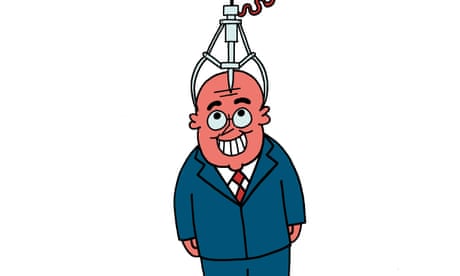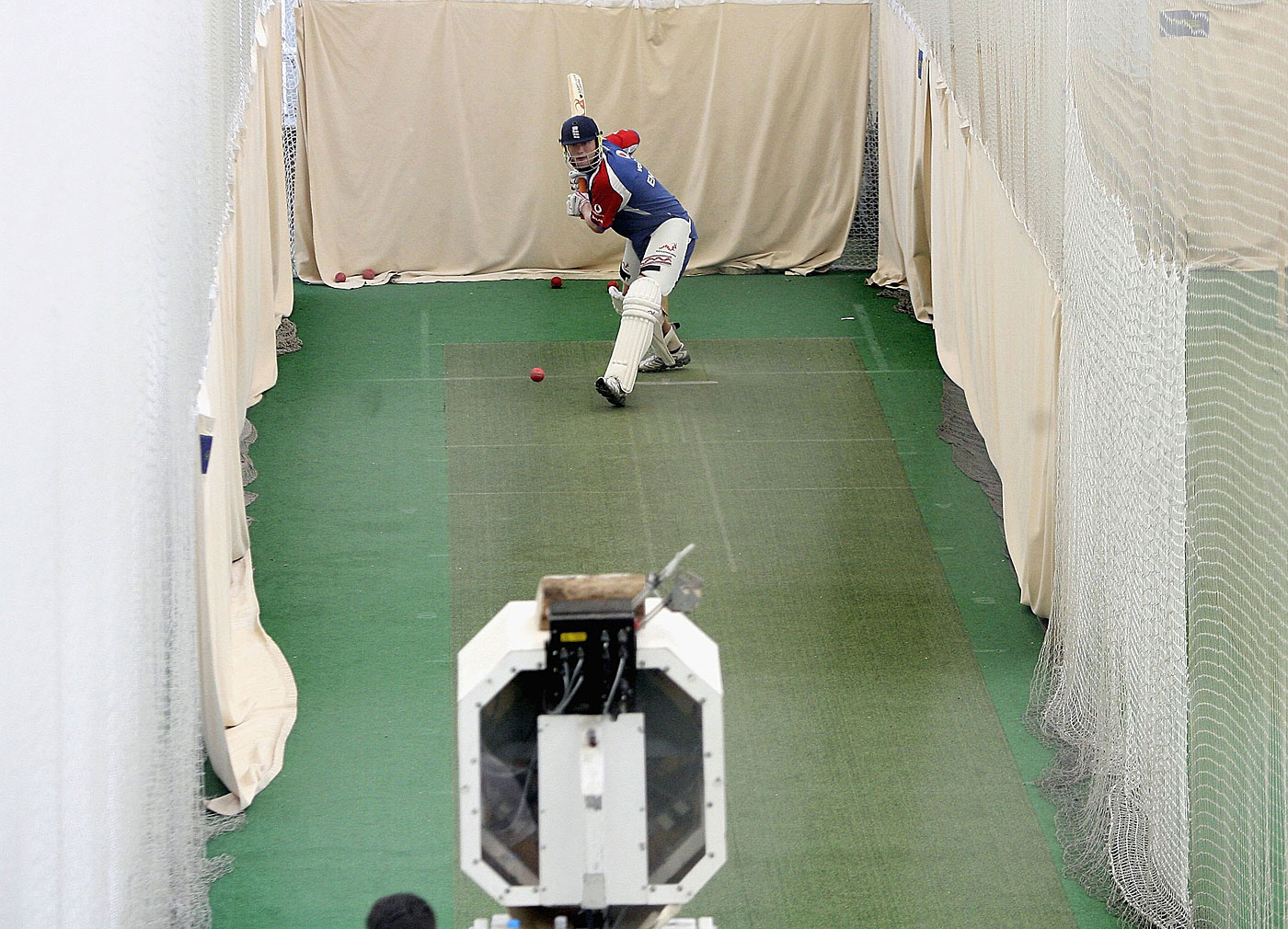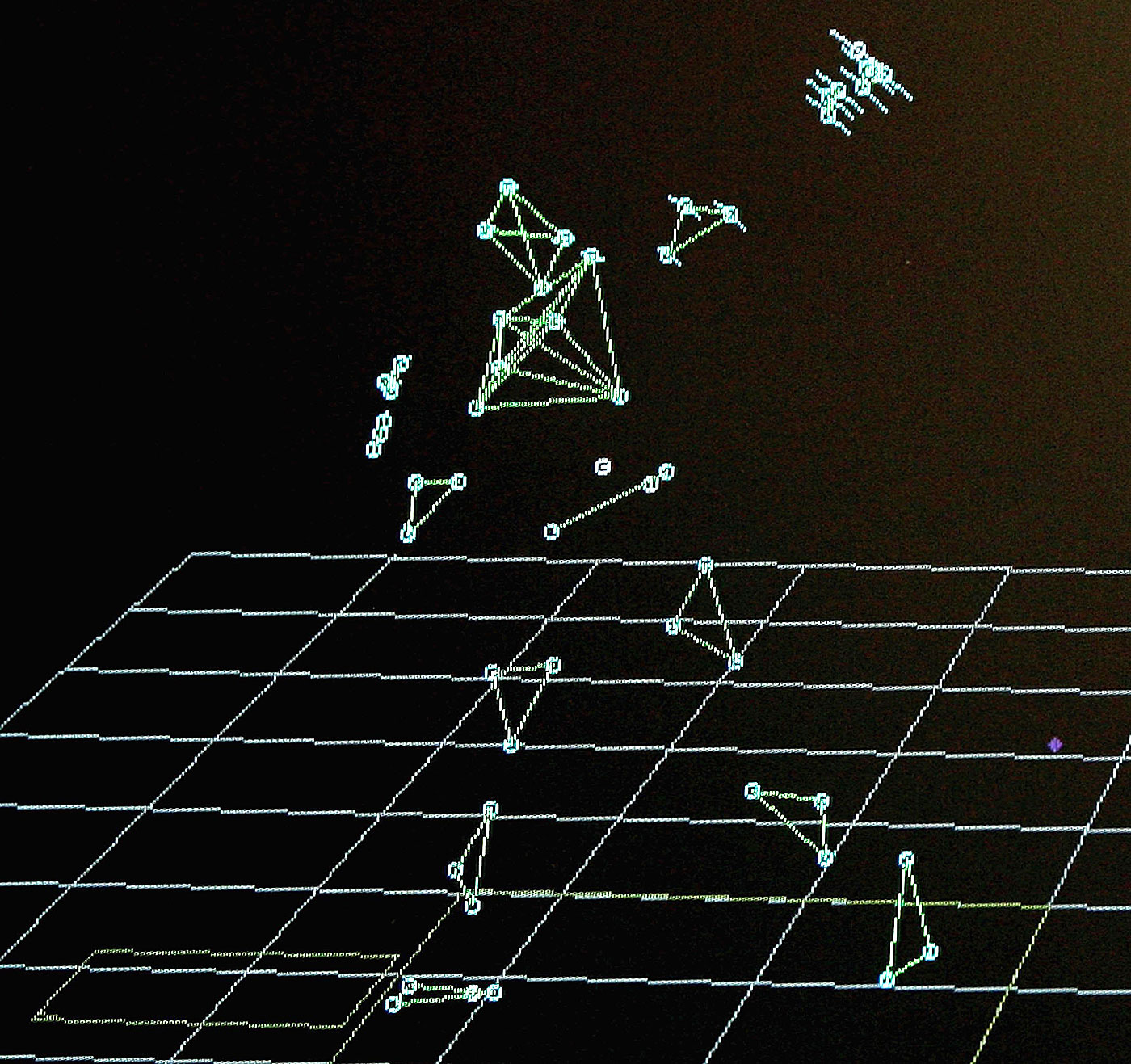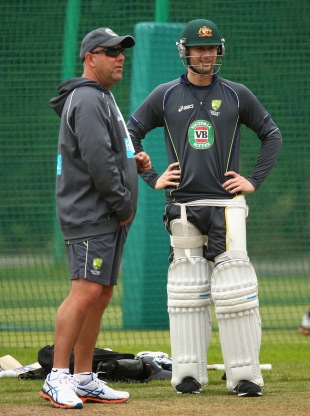'People will forgive you for being wrong, but they will never forgive you for being right - especially if events prove you right while proving them wrong.' Thomas Sowell
Search This Blog
Monday, 5 August 2024
Wednesday, 1 November 2023
Saturday, 17 June 2023
The Science Delusion
"Science seeks the truth. And it does not discriminate. For better or worse it finds things out. Science is humble. It knows what it knows and it knows what it doesn't know. It bases its conclusions and beliefs on hard evidence - evidence that is constantly updated and upgraded. It doesn't get offended when new facts come along. It embraces the body of knowledge. It doesn't hold onto medieval practices because they are tradition" Ricky Gervais. Discuss
Here's a response that includes examples that both support and contradict each claim of science:
- "Science seeks the truth."
Science indeed seeks the truth, as demonstrated by discoveries such as the theory of gravity, which explains the attraction between objects. However, it is important to note that science is an ongoing process, and not all scientific claims necessarily lead to absolute truths. For example, in the past, scientists believed in the existence of ether as a medium for transmitting light, but subsequent research disproved this concept.
- "And it does not discriminate."
While the scientific method itself does not discriminate, biases and discrimination can sometimes infiltrate the scientific community. Historically, women and minority scientists faced barriers to entry and recognition in certain fields. However, efforts are being made to address these issues and promote inclusivity and diversity within scientific research.
- "For better or worse, it finds things out."
Science has led to numerous positive advancements, such as the development of vaccines that have eradicated diseases like smallpox. However, scientific discoveries can also have unintended negative consequences. For instance, the industrial revolution, driven by scientific advancements, contributed to environmental pollution and climate change, which have had detrimental effects on ecosystems and human health.
- "Science is humble. It knows what it knows and it knows what it doesn't know."
Science encourages humility, but scientists are not immune to biases or being overly attached to certain ideas. For example, the resistance to the concept of continental drift, proposed by Alfred Wegener in the early 20th century, persisted for decades before overwhelming evidence in the form of seafloor spreading and plate tectonics led to its acceptance.
- "It bases its conclusions and beliefs on hard evidence - evidence that is constantly updated and upgraded."
Science relies on empirical evidence, but the interpretation of evidence can sometimes be influenced by personal biases or flawed methodologies. One example is the case of cold fusion, which gained attention in the 1980s as a potential new source of clean energy. However, subsequent studies failed to reproduce the initial results, leading to skepticism and the rejection of cold fusion as a viable scientific concept.
- "It doesn't get offended when new facts come along."
While the scientific method is designed to be objective, scientists can exhibit resistance to new facts that challenge established theories. An example is the initial rejection of the idea that bacteria can cause stomach ulcers. Australian scientists Barry Marshall and Robin Warren faced significant skepticism and even ridicule for their discovery, but eventually, their work was validated and led to a new understanding of the causes of ulcers.
- "It embraces the body of knowledge."
Science indeed builds upon existing knowledge, but there can be cases where outdated or incorrect ideas persist due to various reasons. One example is the persistence of the concept of "vestigial organs" in human anatomy, which posited that certain organs had lost their original function over time. While some organs once thought to be vestigial have been reevaluated, others still remain controversial or have alternative explanations.
- "It doesn't hold onto medieval practices because they are tradition."
Science aims to prioritize evidence-based reasoning, but there have been instances where certain traditional practices have persisted despite contradicting scientific evidence. An example is the continued use of certain alternative medicine practices that lack empirical support or have been debunked by rigorous scientific studies.
In conclusion, while science as a methodology strives for truth, objectivity, and progress, it is essential to acknowledge that human biases, limitations, and social factors can impact scientific endeavors. The scientific process is an ongoing journey of discovery, subject to refinement and revision as new evidence emerges and paradigms shift.
Saturday, 23 April 2022
The state of Pakistan: Isn't the support for BJP similar?
Fahd Hussain in The Dawn
Imran Khan’s supporters can see no wrong in what he says or does. We have witnessed this phenomenon unfurl itself like a lazy python these last few years, but more so with greater intensity during Khan’s pre- and post-ouster days. On display is a textbook case of blind devotion. Such devotion entails a deliberate — or perhaps subconscious — suspension of critical thinking. Only mass hysteria can explain absolute rejection of facts and a willing embrace of free-flying rhetoric untethered by verifiable information.
And yet, does this really make sense?
Bounce this explanation off actual people around you — friends, families, acquaintances — and you start to feel uncomfortable with the laziness of the explanation.
On your left, for instance, is the professor with a doctorate in natural sciences from one of the top universities in the world, someone whose entire educational foundation and career is based on the power of empirical evidence and scientific rationalism — and here he is hysterically arguing why the PTI deputy speaker’s violation of the constitution is no big deal. On your right is the top executive of a multinational company with an MBA from an Ivy League school, someone whose training and practice of craft is based on hard data crunched with power of sharp logic — and here he is frothing at the mouth in delirium while yelling that the Joe Biden administration actually conspired with the entire top leadership of the PDM to topple Imran Khan.
These are rational people, you remind yourself. You have known them for years, and admired them for their academic and professional achievements — perhaps even been motivated by their pursuit of success — and yet you see them experiencing a strange quasi-psychedelic meltdown in full public glare. It just does not add up.
It is not just these metaphorical persons — resembling many real ones in all our lives, as it so happens — but hundreds of thousands of Pakistanis from all walks of life locked inside a massive groupthink spurred by sweeping generalisations dressed up as political narrative. No argument, no logic and no rationale — no, nothing makes sense, and nothing is acceptable or even worth considering if it does not gel perfectly with their preconceived notions.
What we are witnessing is a seminal moment in our political evolution — progressive or regressive is a matter of personal perspective — and this moment is situated bang in the centre of a social and political transformation so impactful that it could define the shape of our society for the years ahead.
In an acutely polarised environment, it is easy to pass judgement on those sitting across the fence. Most of us yield to this temptation. When we do, we help reinforce caricatures that have little resemblance to people around us, and these fail to explain why people believe what they believe.
So why do such a large number of people believe what they believe even when overwhelming evidence points towards the opposite conclusion? In our context, this may be due in part to the visceral politicisation of the national discourse and the deep personal loathing of rivals that the PTI has injected into what should otherwise be a contest of ideas and ideologies. At the heart of this is the revulsion against the system because it has not really delivered what it exists to deliver: improving the lives of citizens through protection of rights and provision of services. It is therefore easy and convenient to blame the system, and in turn all those institutions that constitute the system as a whole.
Imran Khan has modelled himself well as the anti-system crusader. He insists very persuasively that he has neither been co-opted nor corrupted by the system; that when he says he wants to change this system, it implies that there is nothing sacrosanct about the system, or for that matter, about the exalted institutions that make up the system. He has been able to establish this narrative successfully because the central theme of his narrative is, in fact, true: the system has not delivered.
But the argument is only half done here. The other half is perhaps even more crucial — diagnosing why it has not delivered. It is here that Imran Khan goes off tangent. And he does so not just in terms of his solutions, but his own shockingly weak performance as the prime minister who had it all but could not do much with it. In fact, after nearly four years in power, and having precious little to show for them, Imran has for all practical purposes joined the long line of those who are, in fact, responsible for the sad reality that the system has not delivered.
But someone forgot to break this news to the PTI supporters.
In essence then, if Pakistani society wants to row itself back from this stage where the electorate is at war with itself on a battlefield littered with semi-truths, partial facts and outright lies, it will need to face up to a bitter fact: what we see unfolding in front of us is the contamination of decades of social and educational decay injected with deadly and potent steroids of propaganda, brainwashing and ‘otherisation’ of anyone who looks, speaks, acts or believes differently.
Those social studies books you read in school and thought you would outgrow — well, now you know how wrong you were?
In this cesspool, everyone points fingers at everyone else when no one really has the right to do so. Seven decades of wrong governance laced with wrong priorities and fuelled by wrong policies have led us to a stage today where traditional parties cannot stomach the aspirations of a new generation, and new parties cannot digest the requirements of what constitutes governance, statecraft and institutional equilibrium within a democratic society.
And you thought holding elections was our biggest problem today. Be afraid. Be very afraid.
Tuesday, 12 April 2022
Saturday, 2 September 2017
Holy men — theirs and ours
Monday, 20 March 2017
Meritocracy: the great delusion that ingrains inequality

We must create a level playing field for American companies and workers!” shouted Donald Trump in his first address to Congress last month, before announcing that tighter immigration controls would take the form of a “merit-based” system.

Like so many before him, Trump was wrapping political reforms in the language of meritocracy, conjuring up the image of a “fair” system where people are free to work hard to activate their talent and climb the ladder of success.
Since becoming prime minister, Theresa May has also promised to make Britain “the world’s great meritocracy” (or, in The Sun’s phrase, a “Mayritocracy”). She reiterated this pledge when announcing her revival of the grammar schools system, abandoned in the 1960s. “I want Britain to be a place where advantage is based on merit not privilege,” she proclaimed, “where it’s your talent and hard work that matter, not where you were born, who your parents are or what your accent sounds like.”
In the wake of the 2008 financial crash, many people noticed that the meritocracy they had been taught to believe in wasn’t working. The idea you could be anything you wanted to be, if only you tried hard enough, was increasingly hard to swallow. Even for the relatively pampered middle classes, jobs had dried up, become downgraded and over-pressured, debt had soared and housing was increasingly unaffordable.
Even Thatcher presented herself as an enemy of vested interests and a promoter of social mobility
This social context, created through 40 years of neoliberalism, was reflected on TV: in Breaking Bad, being brilliant at chemistry was not enough to guarantee mainstream career progression or even survival; the evisceration of social support was the backdrop to The Wire; and the precarious creative labour depicted in Girls was very different to the glamorous stability shown a decade earlier in Sex and the City.
In the face of this instability, May and Trump have managed to resuscitate the idea of meritocracy to justify policies that will increase inequality. They use different cultural accents: Trump’s brash rhetoric panders overtly to racism and misogyny; May presents herself as a fair-minded headmistress of the home counties. But their political logic is intertwined, as indicated by the indecent haste with which May rushed to the White House post-election. Both acknowledge inequality but prescribe meritocracy, capitalism and nationalism as the solution. Both want to create economic havens for the uber-rich while deepening the marketisation of public welfare systems and extending the logic of competition in everyday life.
When the word meritocracy made its first recorded appearance, in 1956 in the obscure British journal Socialist Commentary, it was a term of abuse, describing a ludicrously unequal state that surely no one would want to live in. Why, mused the industrial sociologist Alan Fox, would you want to give more prizes to the already prodigiously gifted? Instead, he argued, we should think about “cross-grading”: how to give those doing difficult or unattractive jobs more leisure time, and share out wealth more equitably so we all have a better quality of life and a happier society.

‘May and Trump have managed to resuscitate the idea of meritocracy to justify policies that will increase inequality.’ Photograph: Stefan Rousseau/PA
The philosopher Hannah Arendt agreed, arguing in a 1958 essay: “Meritocracy contradicts the principle of equality … no less than any other oligarchy.” She was particularly disparaging about the UK’s introduction of grammar schools and its institutional segregation of children according to one narrow measure of “ability”. This subject also troubled the social democratic polymath Michael Young, whose 1958 bestseller The Rise of the Meritocracy used the M-word in an affably disparaging fashion. The first half of his book outlined the rise of democracy; the second told the story of a dystopian, meritocratic future complete with black market trade in brainy babies.
But in 1972, Young’s friend the American sociologist Daniel Bell gave the concept a more positive spin when he suggested that meritocracy might actually be a productive engine for the new “knowledge economy”. By the 1980s the word was being used approvingly by a range of new-right thinktanks to describe their version of a world of extreme income difference and high social mobility. The word meritocracy had flipped in meaning.
Over the past few decades, neoliberal meritocracy has been characterised by two key features. First, the sheer scale of its attempt to extend entrepreneurial competition into the nooks and crannies of everyday life. Second, the power it has gathered by drawing from 20th-century movements for equality. Meritocracy has been presented as a means of breaking down established hierarchies of privilege.
Even Margaret Thatcher, despite her social conservatism, presented herself as an enemy of vested interests and a promoter of social mobility. Under New Labour, meritocracy embraced social liberalism, rejecting homophobia, sexism and racism. Now, we were told, really anyone could “make it”.
Those who did “make it” – the enterprising mumpreneur, the black vlogger, the council estate boy-turned-CEO – were spotlighted as parables of progress. But climbing up the social ladder became an increasing individualised matter, and as the rich got richer the ladders became longer. Those who didn’t make it were ignored or positioned as having personally failed. Under the coalition and Conservative governments, meritocratic yearning took a more punitive turn. In David Cameron’s “aspiration nation”, you were either a striver or a skiver; the very act of hoping to reach upwards became a moral obligation. Those who could not draw on existing reservoirs of privilege were told to worker harder to catch up.
The fact is, meritocracy is a myth. Social systems that reward through wealth, and which increase inequality, don’t aid social mobility, and people pass on their privilege to their children. The Conservatives have made this situation far worse by raising the inheritance tax threshold. And their reintroduction of grammar schools would involve using extremely narrow educational measures to divide children and to privilege the already privileged (often with the help of expensive private tutors). As the geographer Danny Dorling has said, it is a system of “educational apartheid”.
“Merit” itself, moreover, is a malleable, easily manipulated term. The American scholar Lani Guinier has shown how, in the 1920s, Harvard University curbed the number of Jewish students admitted by stipulating a new form of “merit”: that of “well-rounded character”. A more recent example was supplied by the reality TV filmmaking contest Project Greenlight, in which the white actor Matt Damon repeatedly interrupted black producer Effie Brown to tell her that diversity wasn’t important in film production: decisions, he explained, have to be “based entirely on merit”. This “Damonsplaining” was widely ridiculed on social media (“Can Matt Damon tell me why the caged bird sings?”). But it illustrated how versions of “merit” can be used to ingrain privilege – unlike clear criteria for specific roles, combined with anti-discrimination policies.
It is not hard to see why people find the idea of meritocracy appealing: it carries with it the idea of moving beyond where you start in life, of creative flourishing and fairness. But all the evidence shows it is a smokescreen for inequality. As Trump, May and their supporters attempt to resurrect it, there has never been a better moment to bury meritocracy for ever.
Thursday, 10 September 2015
Technology and the amateur cricketer
 The professional cricketer lives an examined life, with feedback from various corners © Getty Images
The professional cricketer lives an examined life, with feedback from various corners © Getty ImagesEvery journalist knows the horror of their own voice. The realisation comes early, when you begin recording interviews. There, on the tape or in the bytes or the VT, is not the voice you thought that you had, the one that's been echoing in your ears for your whole life, but the one that the rest of the world hears - reedy, nasal, pitched entirely differently.
It takes a while to get over the discovery and to become acquainted with the notion that self-image overlaps only slightly with the objective view of the rest of the world.
Cricket is deep into its age of analysis. Kartikeya Date's lovely piece in the current Cricket Monthly illuminates the depth of it: every ball in every major match is logged, filed, deconstructed. It means that the professional cricketer lives an examined life, and its information comes at them from all angles: their coaches, their laptops, the television, the internet, YouTube, Twitter… a bombardment of feedback that can leave them in no doubt as to what they look like in the eyes of the world. Reality here is absolute, self-image challenged from an early age.
It has a purpose, of course; all of this stuff, and in a sport that exacts a high psychological price, strong self-knowledge can be an important anchor. It's why the analysed player speaks constantly of "knowing my game", "executing my skills" and so on. There is no longer any mystery to how they do what they do and so they take refuge in the empirical evidence of their talents.
The amateur cricketer (apart from the serious, higher-level one) is the polar opposite, a player who relies almost totally on the powers of delusion. In our heads we are younger, stronger, faster and better than ever. Fleeting successes sustain the vision.
The classic response to failure is not to practise more but to buy a new bat or try a new grip or take up a new place in the order. Bowlers gaze at the television and imagine that their pace is up there at the dibbly-dobbly end of the pro game - Paul Collingwood maybe, or David Warner.
Does analysis have a role to play here, where the idea of preparation is a few taps on the boundary edge when you're next in? Can an encounter with the awful reality of your game offer the way towards the radical and constant self-improvement sought and often attained by the professional cricketer?
As with all technologies, the machinery required for analysing cricket is becoming more available as the hardware becomes affordable. As a joint birthday present (and maybe a not-so-subtle hint) our team-mates bought me and my fellow senior player Big Tone a session at the indoor school at Lord's, where they have installed a lane with Pitch Vision technology and another with Hawk-Eye. Pitch Vision ("Come face to face with your own performance outcomes") utilises sensors and cameras to offer immediate video playback and analysis of every delivery on both a big screen behind the net and via downloadable post-session data for perusal at your leisure.
 A bowling action in pixels © Getty Images
A bowling action in pixels © Getty ImagesDisconcertingly, it also measures the speed of each delivery. Accompanying me and Big Tone (ostensibly both batsmen) is our captain Charlie, who is an opening bowler and as such has more invested in the unyielding outcome of the speed gun.
I watch a playback as a stooped, shuffling figure advances slowly - really slowly - towards the crease before hopping into a round-arm, bent-backed delivery that progresses at a stately 50mph towards the batsman. "Ha!" I think. "Who's that old man…" before the dreaded realisation that, of course, it is me.
In my mind, I have a jaunty and rapid run-up and quite a high arm. The screen before me shatters that illusion forever. Sybil Fawlty's withering description of the hapless Basil as "a brillianteened stick-insect" flashes into my head as I watch myself replayed in super slo-mo. I briefly salvage some self-esteem with a delivery recorded at 62mph before realising that the screen is still showing Charlie's last ball.
The batting was a little better, or at least a little more familiar. I'd seen myself on camera years ago and so my psyche had absorbed the fact that I wasn't exactly King Viv, more of a taller Boycott type, whose defence was nonetheless far more permeable than the great man's. I had, though, an idea that my backlift was high and that I had a dynamic stance ready to push forward or back with coiled power. Sadly it was all more of a non-committed shuffle. Although my bat speed was something of a triumph, especially watching in normal time after a period of slow motion.
The Hawk-Eye session was equally revelatory. Its on-screen analysis is identical to its televisual output - the beehive, the pitch map, the strike zones and so on - except with very different, and reduced, figures. The finest moment was the side-on ball-tracker of one of Big Tone's medium-pacers. Stopping the gun at 42mph, it ascribed two long and looping parabolas and was actually descending as it hit the stumps. The ball's pathway resembled a 22-yard letter "m".
It was a lot of fun, and illuminated the gulf between the world of the pro cricketer, who must worry and fret about this sort of stuff, and the amateur, who, like me, watched Glenn Maxwell bowl the next day at 57mph with renewed admiration for his pace. In the blinding light of technology's glare, your game is laid bare. It will take me a while to retreat back into the land of comfortable and happily deluded fantasy.
Saturday, 8 August 2015
Rediscovering God with Rupert Sheldrake
Also watch
The Science Delusion by Rupert Sheldrake
Rupert Sheldrake - The Science Delusion: Why Materialism is not the Answer
Monday, 14 July 2014
The Science Delusion by Rupert Sheldrake - A review
The Science Delusion - Sheldrake
The Day the Universe Changed - James Burke

Friday, 21 February 2014
Wednesday, 24 July 2013
Australian Cricket: hubris, despair, panic

| |||
Related Links
Players/Officials: Michael Clarke | Darren Lehmann
Series/Tournaments: Australia tour of England and Scotland
| |||
The idea will not leave me alone. A sneaking question keeps coming into my head: are Australia losing their cricketing edge? And I don't just mean the Ashes. I mean the whole legend of the Aussie battler that has been constructed over decades of flinty toughness…[Once] self-reliance was as central as toughness. Rod Marsh's coaching advice was simple: "Sort it out for yourself." That spirit ran through the great tradition. Bradman taught himself to bat by hitting a golf ball against a wall with a stick. Learning to bat was another form of looking after yourself, like pitching a tent in the outback. That resilience was compounded by the sense that Australians had a point to prove, that the world too often underestimated them. Cricket was a means of getting even…I was brought up on the received wisdom that it was the Australian system that made them so tough - the strong club cricket, the fierce inter-state rivalries. Each has now declined, at least to some extent. It may be a very long time indeed - a full turn of the dynastic wheel - before Australia will again be able to boast such a record of dominance.
let us leave behind the soap opera, the tidbits of gossip and intrigue. No causal truths reside there. What David Warner's brother thinks of Shane Watson did not lose Australia the Test match, nor did the sacking of Arthur, nor homework-gate, nor an incident in a nightclub
